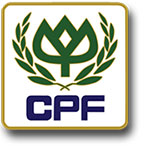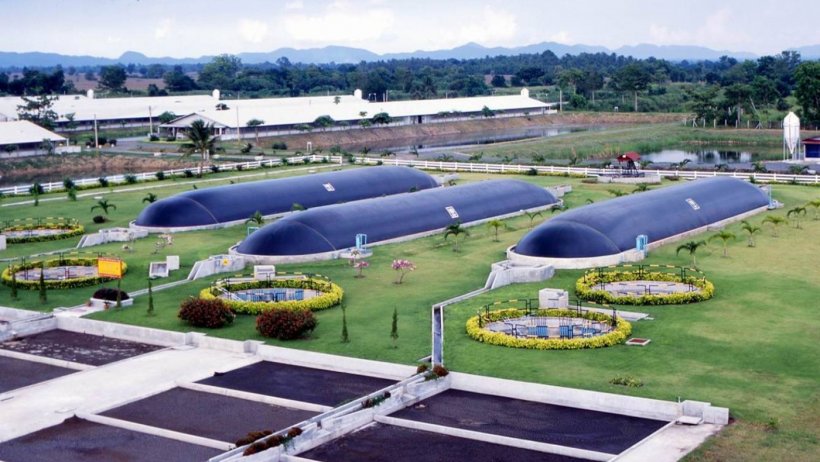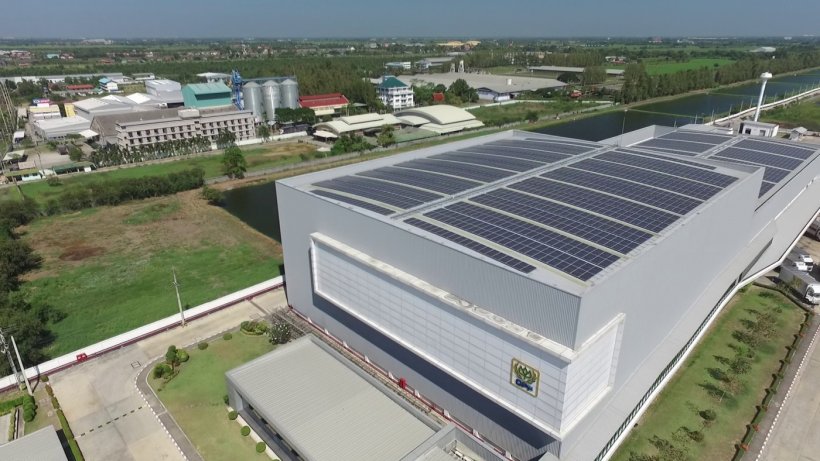
Mr. Wuthichai Sithipreedanant, senior vice president for corporate social responsibility and sustainable development of CPF, said the company has adopted the Circular Economy principle to optimize resource use efficiency.

He added that CPF has proactively looked for solutions to reduce food loss and food waste generated in its business and to increase energy and water consumption efficiency as well as using more renewable energy and reducing its greenhouse gas emissions. Moreover, it has continuously reduced the use of single-use plastic throughout our value chain and taken efforts to design environmental-friendly food packaging.
“As a leading food producer, CPF places importance to safe and eco-friendly production,” said Mr. Wuthichai, “Balance of human life is closely linked to the balance of nature. People cannot live in sustainable prosperity without nature's abundant resources. Therefore, we must take care of the environment as we take care of ourselves,”
In order to take part in the fight against the global plastic waste crisis, CPF is committed to contributing to solving the plastic waste problems and optimizing the use of resources, by developing a sustainable plastic packaging lifecycle. Currently, 100% of CPF’s plastic packages are reusable and recyclable.

The company implements a range of projects and initiatives to support its determination to reduce food loss and food waste in the food production supply chain. CPF has a plan to start collecting such data from 2020 onward.
The data collection methodology will be adopted from that of the FAO, using broilers as the pilot unit to provide the best practice, which will later implement in other business units and establish a policy framework to minimize food loss and food waste.
Mr. Wuthichai added that the company is committed to reducing environmental impacts resulted from climate change throughout our value chain by promoting renewable energy and increasing energy efficiency.
Currently, renewable energy ratio is at 26% of the total energy consumption. Biomass from waste materials e.g. scrap wood, sawdust and corn cob, is being used in livestock and aquaculture feed businesses as fuels for steam boilers to replace coal. Moreover, the company aims to be Coal Free Operations by 2022.
All of CPF’s swine farms have transformed wastewater and manure through the water treatment system into biogas to generate electricity used on the farms. The practice has been expanded to our operations in Vietnam, Laos, Cambodia, Malaysia, and the Philippines.

For Solar Power source, twenty-four of feed mills, food processing plants, ready-to-eat production plants, and distribution centers have installed solar rooftops to generate electricity for production process. The total electricity generation capacity is 15 Megawatt. The solar rooftops are expected to be fully operated by 2020.
On environmental conservation, CPF in collaboration with the Royal Forest Department and local communities have conserved, restored, and reforested the area around Khao Phraya Doen Tong of Lopburi Province covering the area of 5,971 rai, absorbing 39,690 tons of CO2e per year.
June 9, 2020 - CPF



